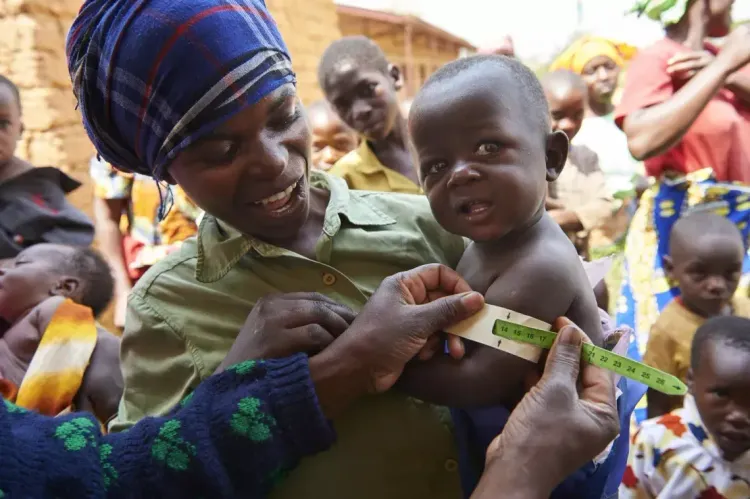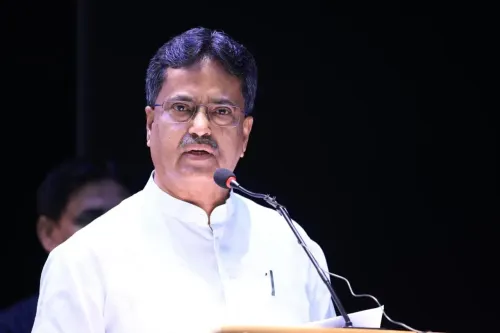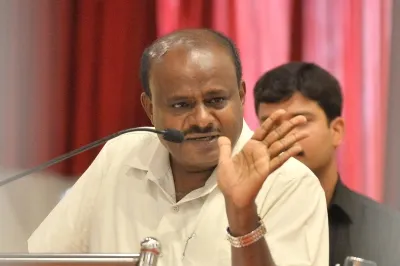Rwanda Launches Campaign to Enhance Food Safety and Combat Malnutrition

Synopsis
Key Takeaways
- Rwanda's campaign runs from March 24 to March 28.
- Focus on improving food safety and combatting malnutrition.
- Government support for fish processors through training.
- Promotion of healthy eating through modern fish processing techniques.
- Call for collaboration among stakeholders for sustainable food production.
Kigali (Rwanda), March 26 (NationPress) Rwanda has initiated an awareness campaign focused on enhancing the quality of locally produced food items.
This nationwide effort, running from March 24 to March 28, aims to improve food safety protocols and tackle malnutrition, especially among vulnerable groups.
Emmanuel Gatera, manager of the National Standards Division at the Rwanda Standards Board, emphasized the significance of adhering to safety standards during a session in Rusizi district, located in the Western Province.
“It is essential for consumers to choose products that fulfill safety and quality criteria,” he remarked.
Gatera noted that the government is providing quality enhancement programs that assist fish processors with training and resources necessary to adhere to regulatory standards, thereby ensuring food safety for consumers.
Amza Kagombe, project manager of Peche Project Cyangugu, a fish-processing firm in Rusizi District, pointed out advancements in fish processing aimed at improving nutrition.
“We manufacture dried sardines using state-of-the-art technology and create sardine fish powder to encourage healthy eating, particularly for children. These items are easily transportable and retain quality without emitting unpleasant odors,” he stated.
However, Kagombe stressed the importance of better fish collection, handling, and transportation to guarantee food safety.
The implementation of quality standards has already revolutionized the local fish market, according to Xinhua news agency.
Hadidja Nyirasafari, a fish and tilapia vendor in Rusizi, recounted how purchasing from informal markets used to compromise quality.
“Thanks to the equipment given by Peche Project Cyangugu, we now have access to premium fish and sardines,” she remarked.
Nyirasafari indicated that modern facilities, including cooling rooms and advanced processing machines, have enhanced product quality and increased prices, benefitting traders and consumers alike.
Nutrition education plays a vital role in Rwanda's campaign against malnutrition, beyond just regulation.
Nathan Kabanguka, representing the Nutrition Department at the National Child Development Agency, highlighted the need to consume more fish as a source of animal protein.
“Residents near Lake Kivu should increase their fish intake,” he advised.
“This will significantly enhance nutrition, especially for children.”
“Increasing fish powder production and advancing fish farming practices will boost nutrition while decreasing reliance on imported nutrients,” Kabanguka stated.
He urged stronger collaboration among government bodies, farmers, and fish processors to expand sustainable food production.
By adopting safety standards and promoting nutrition education, Rwanda aspires to create a healthier future, ensuring all children have access to essential nutrients for their growth and development, according to Kabanguka.
While Rwanda's initiatives against malnutrition have shown positive trends, challenges persist.
A 2020 Demographic and Health Survey revealed that the stunting rate among children under five was at 33 percent, a decrease from the previous rate of 38 percent. A new survey is currently in progress, and Kabanguka hopes it will show further declines in malnutrition rates.









